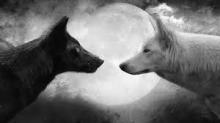Submitted by ARASAllison on
 The best lack all conviction,
The best lack all conviction,
And the worst are full of passionate intensity.
W.B. Yeats; The Second Coming
Introduction
Many commentators on our current political scene have noted how much anger and hate there is in the country right now and how our President-elect Donald Trump has been a lightning rod for this anger, exploiting it to his own political advantage, all the while fanning the flames of hatred with his inflammatory rhetoric, his outright lies, and his denigrating Twitter-messages. Now, after the election, the country is still saturated with intense, polarized and polarizing emotion that seems increasingly to have taken over the national dialogue and pushed it toward extremism.
Last summer, I found myself pulled into this maelstrom, and spent much of my vacation time in Canada reading the New York Times and trying not to hate Donald Trump. My own hatred became a problem for me, and this is one of the reasons I decided to explore the issue of hatred in the American election and in the American psyche. Here are a few of the questions I want to touch on from a psychological perspective. What constellates hate in an individual personality and in a nation? How can hate be contained and transformed into usable anger in the service of the good? How, in other words do we promote “emotional literacy” in ourselves and in our community as a nation? And how do we do so when so many spokespersons in the nation are exploiting us emotionally—goading us towards outrage and hatred in order to distract us from the “inconvenient truths” and painful realities of what it means to live with an informed heart in the complicated, inter-dependent world of the 21st century.